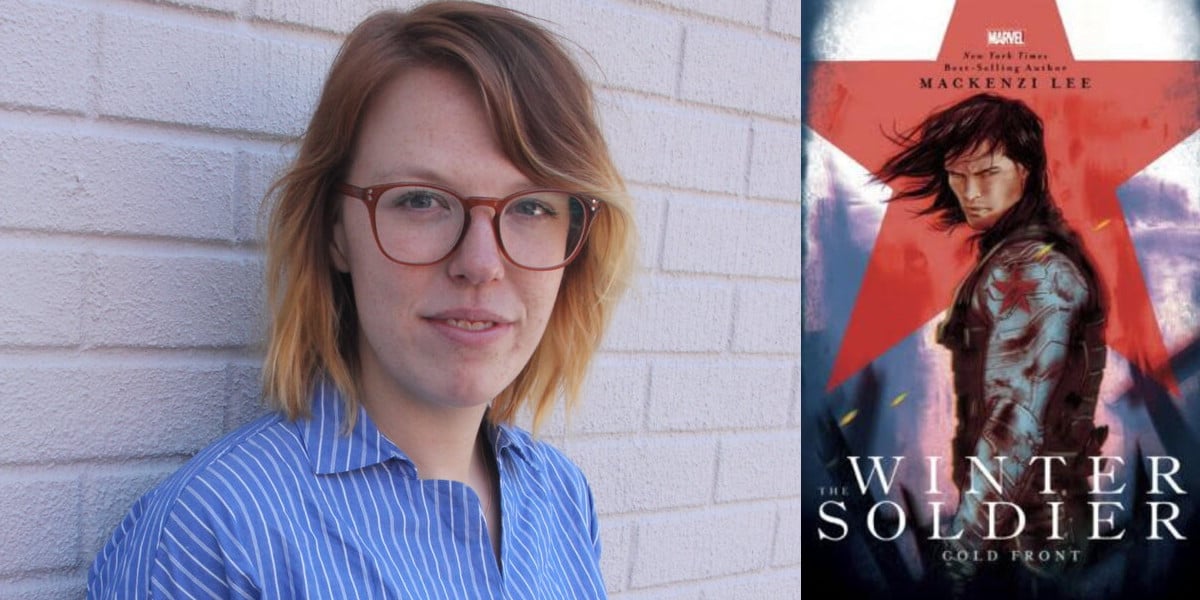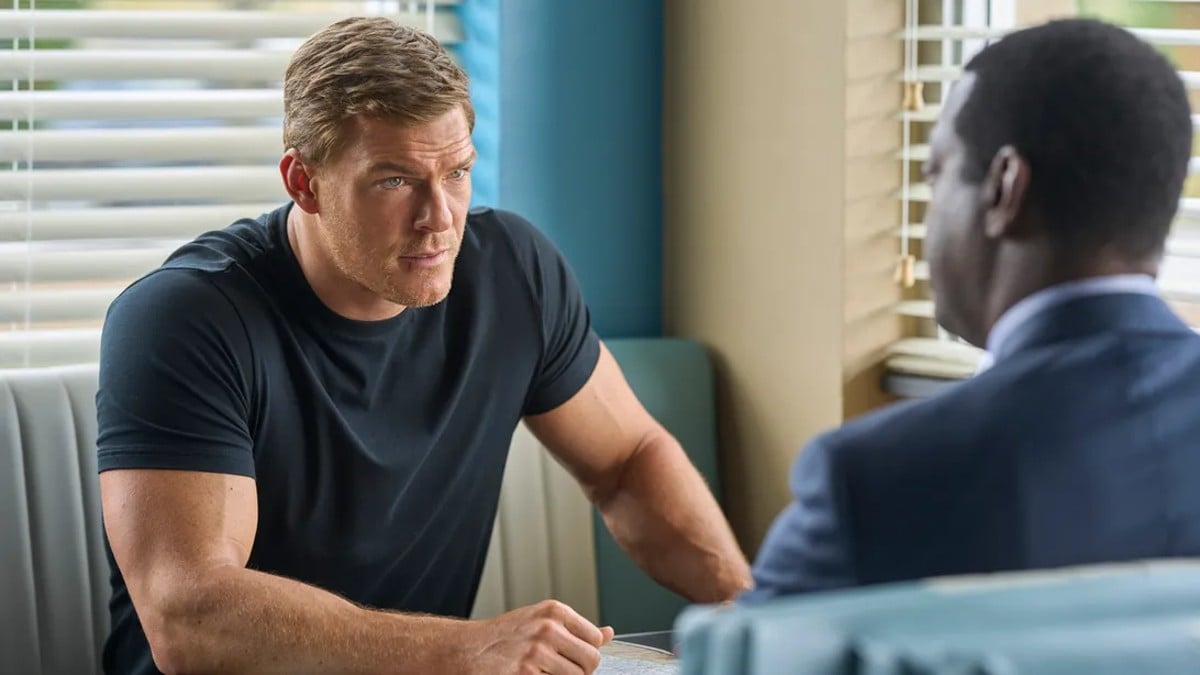Author Mackenzi Lee has tackled the Marvel Universe before with her books Nebula and Gamora: Sisters in Arms and Loki: Where Mischief Lies. Now, she’s back with another antihero story focused on one of Marvel’s most complex and tragic characters, Bucky Barnes (a.k.a. The Winter Soldier). Lee’s newest novel, The Winter Soldier: Cold Front, was released on February 7 and takes readers along on the journeys of Bucky not seen in the Marvel Cinematic Universe (MCU).
The novel is split into two different time periods. Half of the story takes place in 1941 and follows a teenage, orphaned Bucky living on the military base Camp Lehigh with his guardian, Commander Crawford. He is yearning to enlist, but Crawford’s insistence that he wait until he is of age leads to Bucky joining the war through a different means, as an agent of the Special Operations Executive (SOE). The other half of the story takes place in 1954 and sees a brainwashed Bucky being used as a weapon and agent of the Soviet Union while haunted by suppressed memories of his past life.
In line with Lee’s previous works, The Winter Soldier: Cold Front is tragic, heartfelt, and intriguing. It also holds true to the comic books, while adding nice touches of originality. I had the opportunity to discuss her new novel over email, and she opened up about the book’s chess and Tolstoy references, Bucky’s identity outside of Captain America, and her love for Cold War spy stories.
Rachel Ulatowski (TMS): The Winter Soldier: Cold Front is the third Marvel book you have released, along with Nebula and Gamora: Sisters in Arms and Loki: Where Mischief Lies. Of the Winter Soldier, Nebula, Gamora, and Loki, which has been your favorite character to write about?
Mackenzi Lee: No, don’t make me choose! I love them all! But…Bucky Barnes has been my favorite Marvel character for a long time. The first comics I really got into were the Ed Brubaker Winter Soldier run, and I love the inherent tragedy of the Winter Soldier story. The idea of being stripped of your identity and used as an agent for the opposite side of a war you gave your life for, and then to have to slowly claw your way back to yourself, while also atoning for things you did while you lived a different life…it’s complicated stuff! Plus, I love Cold War spy stories as a genre–it was great to get to dive into books by authors like Le Carre as influences.
TMS: The Winter Soldier: Cold Front is split between a story of a teenage Bucky in 1941 and that of a brainwashed Soviet Union soldier Bucky in 1954. Why did you choose these two time periods rather than exploring Bucky’s time as a soldier with Captain America in World War II?
Lee: Most people know Bucky as Captain America’s best friend/sidekick (depending on if you’re a comics or movie person) and their exploits together during World War II. It felt like well-trod ground, and I was worried that, if I focused on that time period, every reader who came to the book would either already know those stories (or some variation of them) or have very specific preconceived ideas about what the book should be, which I would inevitably fall short of. I wanted to write about the before–both because it was untrod ground, and because it was a chance to give Bucky his own character, arc, and existence, outside the shadow of Cap’s.
TMS: In The Winter Soldier: Cold Front, why does Bucky initially show resentment towards Captain America as a child before meeting and becoming close friends with him?
Lee: Okay, he doesn’t hate Captain America, he hates Captain America as a symbol. In the comics, Bucky isn’t Steve’s best friend from Brooklyn. He’s an orphan raised on an army base in Virginia, in the shadow of his deceased father, who was a war hero. Bucky has been raised with all these specific ideas about what it means to be an American and a patriot and a soldier, and they form his ideas of himself and his future. When World War II comes along, he’s too young to enlist, and he’s furious about this because he feels like he’d be a great soldier and has all the right ideas about what it means to be an American patriot, but this *institution* won’t let him because of something as arbitrary as his age. He also has very specific ideas about how he wants to support the war effort–though he doesn’t realize they’re mostly about feeding his own ego rather than actually supporting the troops. So his frustration is less with Captain America and more with Captain America as a figurehead and symbol of the bureaucracy standing in the way of Bucky becoming a soldier. Plus Bucky’s sixteen – everyone’s anger is misplaced at sixteen.
TMS: Bucky’s fellow Soviet agent takes on the secret identity of Rostova, a character in Tolstoy’s War and Peace. Is there an underlying meaning to the name or a specific reason she chose that moniker?
Lee: Well, the reason I chose it is because of my deep and abiding love of War and Peace and Anna Karenina. All the code names in the book come from Tolstoy, mostly because he’s my favorite Russian novelist (pretentious, I know) and because, as far as Russian names go, Tolstoy is a reference most people are at least remotely familiar with.
TMS: In the comics and films, not much is known about Bucky’s teenage relationships and his adoptive family. Why was it important for Bucky’s family life and teenage relationships to be explored in The Winter Soldier: Cold Front?
Lee: Bucky in his own right is such a fascinating character, but he’s so often swallowed up by the shadow of Captain America. It can often feel like there is no Bucky without Cap. I liked the idea of delving into who he was before this formative relationship, and what his life looked like before he met Steve. And, knowing the people he lost makes his eventual turn into the Winter Solider all the more heartbreaking! A tragic backstory is only as strong as…well, as the backstory.
TMS: Bucky and chess genius Imogen “Ginny” Fleming are brought together by the Special Operations Executive (SEO) and her father’s research in mind control. Why did you choose to give the Flemings a background in chess and to imbue several chess references and anecdotes into the novel?
Lee: Well, I definitely watched The Queen’s Gambit right when I started plotting this, and I got very into the soundtrack for a weird 80s pop opera called, simply, Chess. I also learned that chess masters in England were frequently recruited as code breakers in World War II, and censors would search letters for talk about chess games because they could be used to ferry messages. Fascinating stuff! And it just kept popping up in my life and research–in spite of the fact that I’m really not a chess player! I played a bunch while researching and writing, in hopes I’d get better, but…alas.
(featured image: Disney Publishing Worldwide)









Published: Feb 7, 2023 07:00 am